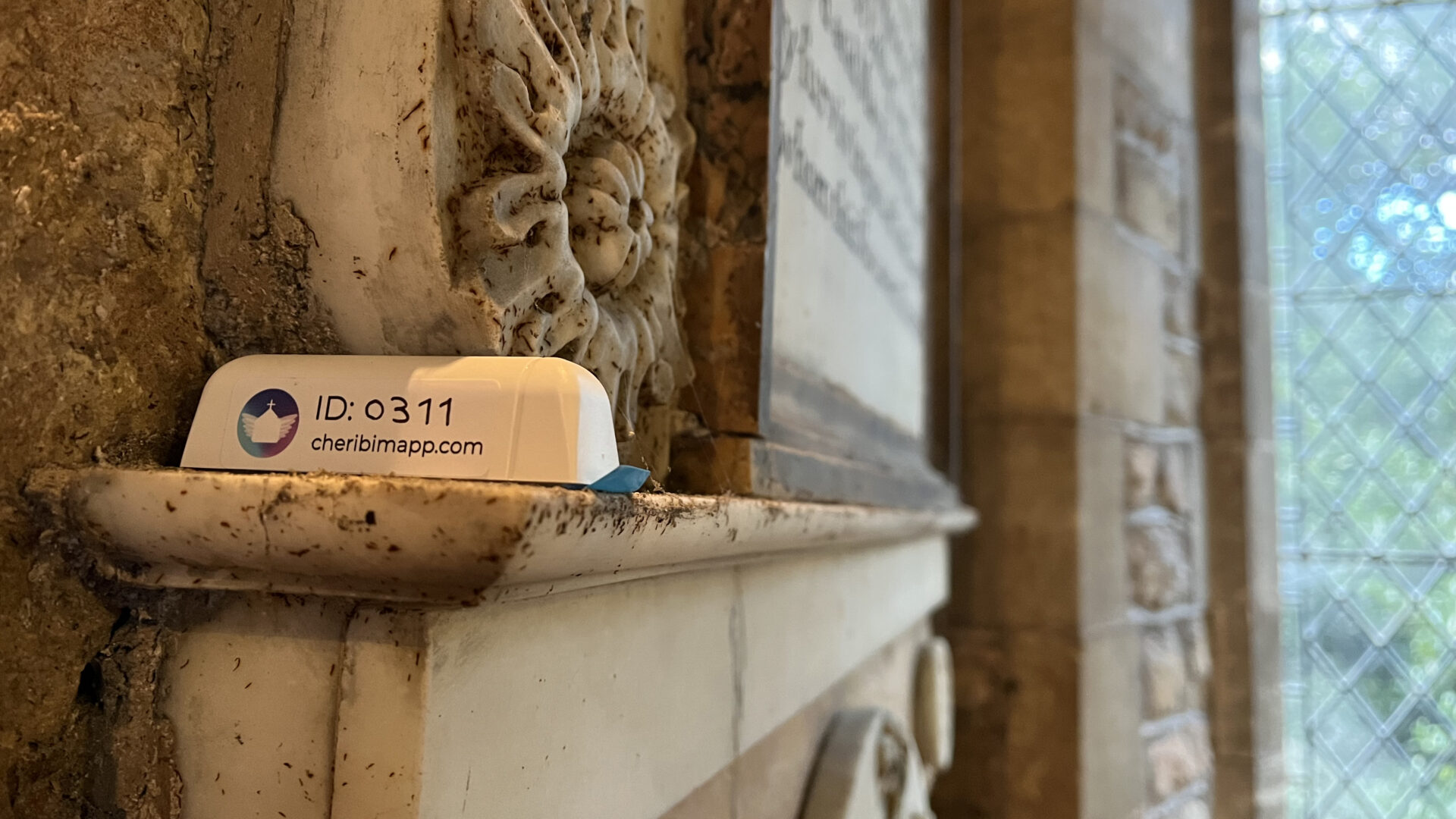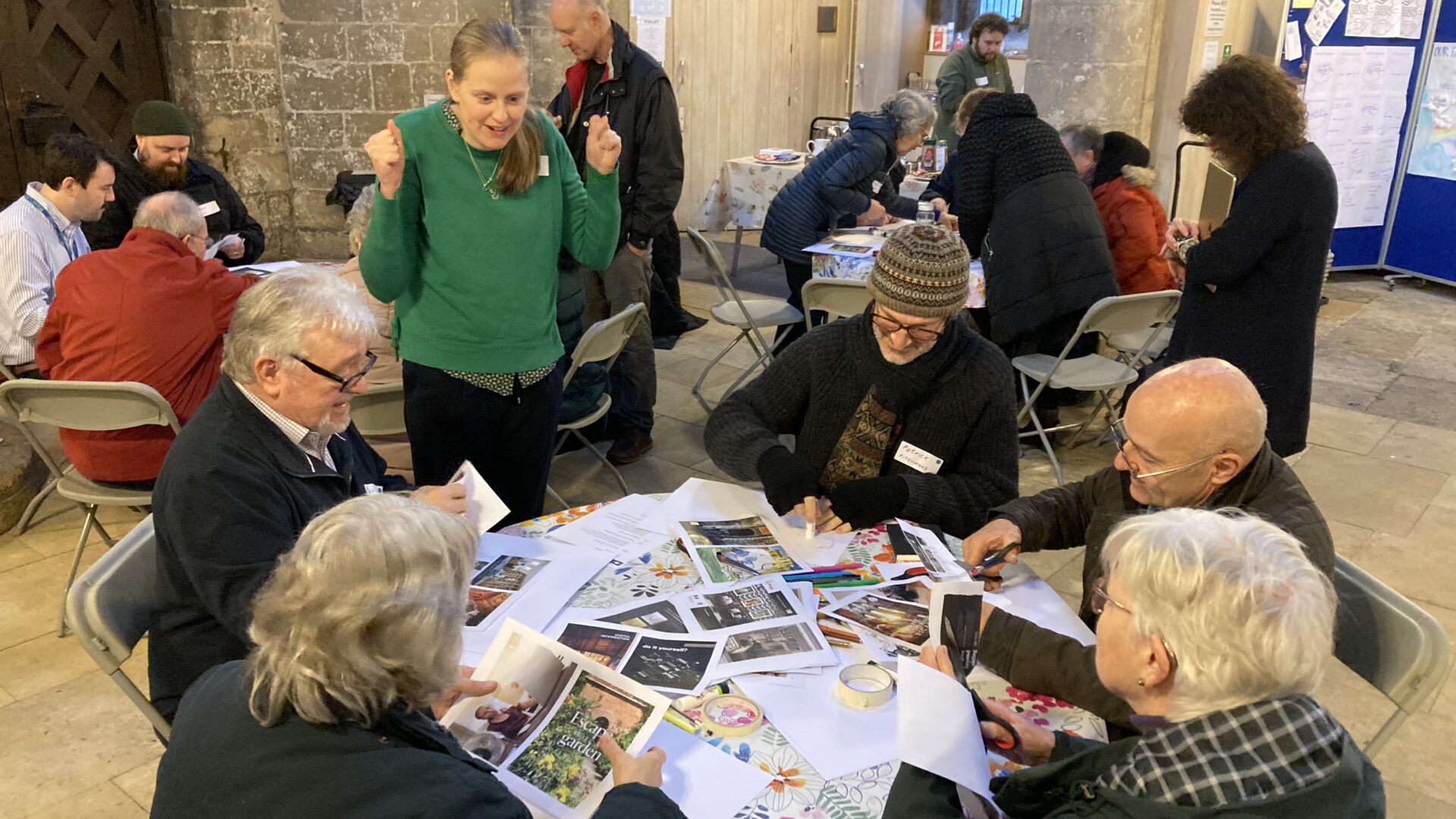Historic Heat
Transforming workforce and volunteer capability to reduce the carbon footprint of historic buildings through Internet of Things (IoT) and machine learning insights.

Project
Historic Heat
Lead Organisation
Cheribim Ltd
URL
cheribimapp.com/sheffielddiocese
Location
Sheffield, UK
Funding
£193, 781.90
About the project
Historic Heat is a collaboration between Cheribim and the Church of England in South Yorkshire, working closely with the people who care for 100 historic churches to develop AI-enabled fabric assessment capabilities which are responsive and context-specific.

The project adopts a people-centred approach, asking ‘what is the least we need to know to make good enough decisions?’ – decisions which inform retrofit, maintenance and other decarbonisation measures in this important subset of buildings. Dr Robyn Pender, leading historic buildings physicist, has developed this approach through a series of workshops and videos; ‘historic heat’ referring to the various ‘hacks’ and ‘habits’ used in the pre-industrial past to improve a building’s thermal performance.
Through the creation of new datasets, including IoT environmental monitoring data, fabric information (such as material and condition) and building use, the project is exploring the application of machine learning models for predictive capacities. Cheribim’s digital collaborative workspace provides real-time insight into the building’s performance, communicated in accessible ways to both the people directly engaged in a building’s care as well as providing cross-building insights to supporting professionals.
What has the project successfully delivered?
- Environmental monitoring systems in place at 85+ historic church buildings; readings made accessible to building users and managers in real-time, showing the effects of heating and occupancy on internal conditions.
- Four ‘historic heat’ workshops delivered to 75 attendees exploring the key principles of building physics, thermal physiology and retrofit through accessible and engaging activities and talks.
- Contextual data collected relating to building fabric and building use to inform data led insights at building and across building levels.
- Machine learning models created utilising all data points, identifying key contextual factors for retrofit decision-making.

What has the project achieved?
- Individual building users and managers are accessing real-time environmental performance data to inform heating use, occupancy and appropriate maintenance action.
- Supporting professionals are comparing data-led insights across buildings to inform resource allocation, retrofit and other net zero action as well as providing data-informed support to individual buildings.
Key lessons learned
- User research and stakeholder engagement has been integral to the acquisition and development of the machine-learning dataset; this has included in-depth consultation with individual building managers, supporting professionals such as the Church’s net zero and business support team and conservation architects and surveyors.
- In-depth research experiments with select case studies have the potential to inform best practice through integration with Historic England and Church of England net zero strategies whilst also delivering healthy and more comfortable buildings.
Next steps
Historic Heat is the first project to develop a context-responsive evaluation tool specifically for historic buildings. Outcomes are useful for anyone involved in the upkeep and adaptation of historic buildings – not just expert professionals – addressing the substantial and critical gap in informed retrofit and low-carbon approaches whilst also tackling sources of thermal discomfort which drive energy use.
Technologies developed and deployed during this project have immediate relevance in the management of historic churches nationally. They are adaptable for use in other building types, such as the public sector (e.g. civic halls, libraries, museums), domestic (comprising 20% historic building stock) and commercial.
Project partners and subcontractors
- Diocese of Sheffield
- Dr. Robyn Pender, Whethergauge

